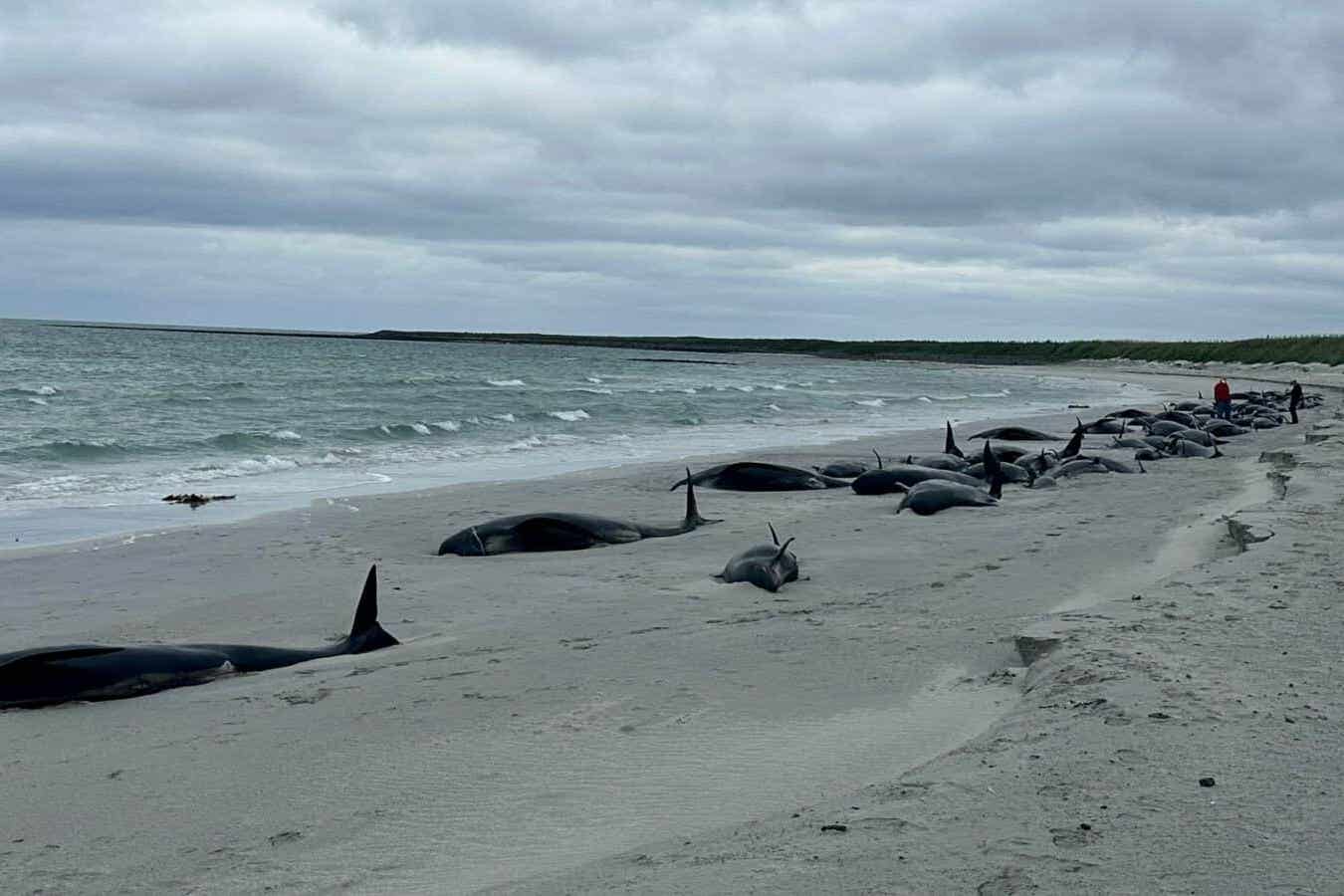Remaining 12 whales stranded on Orkney euthanised
Some 77 whales were found stranded on the beach on Wednesday.

Your support helps us to tell the story
From reproductive rights to climate change to Big Tech, The Independent is on the ground when the story is developing. Whether it's investigating the financials of Elon Musk's pro-Trump PAC or producing our latest documentary, 'The A Word', which shines a light on the American women fighting for reproductive rights, we know how important it is to parse out the facts from the messaging.
At such a critical moment in US history, we need reporters on the ground. Your donation allows us to keep sending journalists to speak to both sides of the story.
The Independent is trusted by Americans across the entire political spectrum. And unlike many other quality news outlets, we choose not to lock Americans out of our reporting and analysis with paywalls. We believe quality journalism should be available to everyone, paid for by those who can afford it.
Your support makes all the difference.The 12 pilot whales which survived following a mass stranding have been euthanised, experts have said.
British Divers Marine Life Rescue (BDMLR) received a report of a mass stranding of up to 100 long-finned pilot whales at Tresness beach on the Isle of Sanday, Orkney, just before 11am on Thursday.
Of the 77 whales which were on the beach, only 12 survived with medics mobilised from around the islands and further afield in Scotland in a bid to save them.
It's really quite emotional when you first arrive
But just after 6pm on Thursday, the BDMLR said the dozen had been euthanised due to the length of time spent on the beach.
“Sadly the remaining 12 pilot whales have been euthanised due to their condition deteriorating from the many hours they have spent stranded on the beach resulting in crush injury from their own weight and the high likelihood that they have inhaled water with the incoming tide,” a statement from the agency said.
“The substrate they’re on is also incredibly soft meaning they have sunk even deeper into the sand when the tide washed over them, so they unfortunately weren’t able to refloat themselves.”
The Scottish Marine Animal Stranding Scheme (SMASS) will attempt to recover some of the bodies to undertake post-mortem examinations, with BDMLR saying local farmers are “on standby” to help recover the animals using tractors and trailers.
Emma Neave-Webb of the BDMLR in Orkney told the BBC it would be a “massive multi-agency undertaking” to remove the whales, adding that investigations would begin on Friday to find out “what on earth has happened here”.
Ms Neave-Webb said local residents had been “absolutely amazing”, adding: “When you first arrive it’s really quite difficult to take in how many there are and quite what the task is ahead of us.
“It’s really quite emotional when you first arrive.
“We knew some of the animals were still alive, so they were priority, but we had to go through every single animal there.”
The whales, she added, were “moving around quite a bit, thrashing their tails occasionally”, making the environment dangerous for rescue workers.
Local farmers, she said, had been “absolutely brilliant”.
“They’re working with the council at the moment to organise where these animals are going to go.
“It’s a massive undertaking and everyone in the community and further afield has really pulled together to help.”